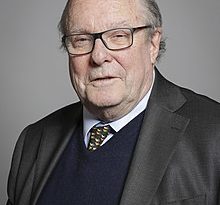Rishi Sunak – 2021 Economic Update Statement
The statement made by Rishi Sunak, the Chancellor of the Exchequer, in the House of Commons on 11 January 2021.
Before I begin, I am sure the whole House will join me in sending our very best wishes to my right hon. Friend the Member for Old Bexley and Sidcup (James Brokenshire). I have been fortunate in having worked closely with him, and he is one of the nicest and most decent people in politics—a fantastic Minister and a tireless advocate for his constituents. We all look forward to his speedy recovery and to seeing him back in this place as soon as possible.
Last week, the Prime Minister set out the actions that we must take to control the spread of coronavirus. With your permission, Mr Speaker, today I will update the House on the economic situation we currently face, the action we are taking to support the British people and businesses through the crisis, and the factors influencing our outlook.
As the House knows well, coronavirus has already caused significant harm to our economy. The scale of the impact bears repeating. GDP fell by 18.8% in the second quarter of 2020. While the economy grew as the country opened up over the summer, it remained 6.7% smaller than it was before the crisis. The Office for Budget Responsibility’s November forecast showed GDP falling again in the final quarter of last year and it forecast the largest fall in annual output for over 300 years. Even with the significant economic support we have provided, more than 800,000 people have lost their jobs since February. While the new national restrictions are necessary to control the spread of the virus, they will have a further significant economic impact. We should expect the economy to get worse before it gets better.
In response, the Government have put in place a comprehensive economic plan. We have provided a fiscal stimulus of over £280 billion to fund our plan for jobs, to support public services like the NHS, and to provide financial support for millions of people and businesses. Some 1.2 million employers have furloughed almost 10 million employees. Almost 3 million people have benefited from our self-employment grants, taking the total support for the self-employed to nearly £20 billion. Over 1.4 million small and medium-sized companies have received Government-backed loans worth over £68 billion. Tens of billions of pounds of tax cuts, tax deferrals and cash grants have been delivered to businesses, and the United Kingdom Government have guaranteed at least £16.8 billion of additional funding for the devolved Administrations in Scotland, Wales and Northern Ireland.
In response to the new national lockdown, we are extending and increasing our financial support. We are providing a bridge for people and businesses until the economy reopens, to give them the chance to rebuild productive capacity. To do that, we have extended the furlough scheme to April, we are supporting self-employed people with a fourth income grant, and we have announced, alongside the introduction of new restrictions, an extra £4.6 billion to protect UK jobs and businesses. All business premises in England that are legally required to close, including in retail, hospitality and leisure, can now claim one-off grants of up to £9,000 for each of their business premises, benefiting more than 600,000 businesses and coming on top of the existing grants worth up to £3,000 paid each month. We have also made discretionary funds of £500 million available for local authorities in England to support local businesses in those areas, on top of the £1.1 billion of discretionary funds that we have already provided to local councils.
Sadly, we have not been and will not be able to save every job and every business, but I am confident that our economic plan is supporting the finances of millions of people and businesses. Across almost all areas of economic policy, we are providing comparable or greater support than all our international peers. As the Office for Budget Responsibility, the Bank of England and the International Monetary Fund have all recognised, our economic response is making a difference by saving jobs, keeping businesses afloat and supporting people’s incomes.
Looking forward, there are signs of hope. First, with the vaccine, we can start to see a path out of coronavirus. Vaccine roll-out is our most important economic lever and we have made available over £6 billion. We have now administered over 2.4 million vaccine doses across the United Kingdom, and by 15 February we aim to have offered a first vaccine dose to everyone in the top four priority groups identified by the Joint Committee on Vaccination and Immunisation.
Also, the data shows that there are potential sources of underlying resilience in our economy. In aggregate, we have seen the household savings ratio reach record levels and, taken as a whole, corporate sector cash buffers have improved. And of course, we have now agreed a new trading partnership with the European Union. We have removed that uncertainty from businesses and can now start to do things differently and better—not least in financial services, where in November I outlined for the House our plan to reinforce the UK’s position as a globally pre-eminent financial centre.
While the vaccine provides hope, the economy is going to get worse before it gets better. Many people are losing their jobs, businesses are struggling, and our public finances have been badly damaged and will need repair. The road ahead will be tough. Now it is time for responsible management of our economy, taking the difficult but right long-term decisions for our country, but I am confident that, with this comprehensive support that the Government are providing and, above all, the determination, enterprise and resilience of the British people, we will get through this. I commend this statement to the House.


